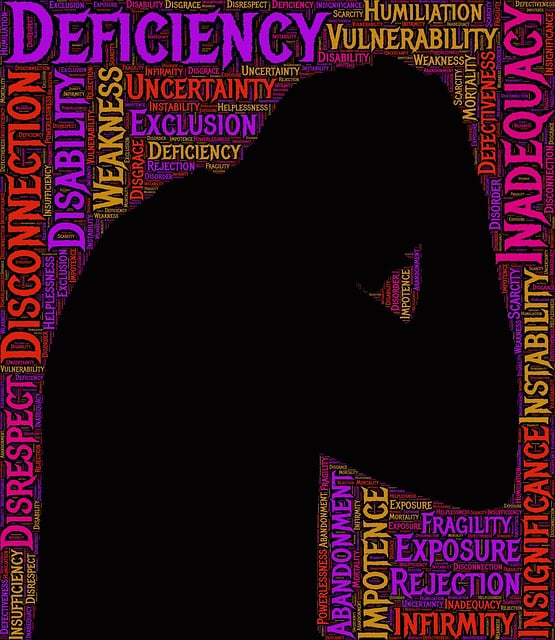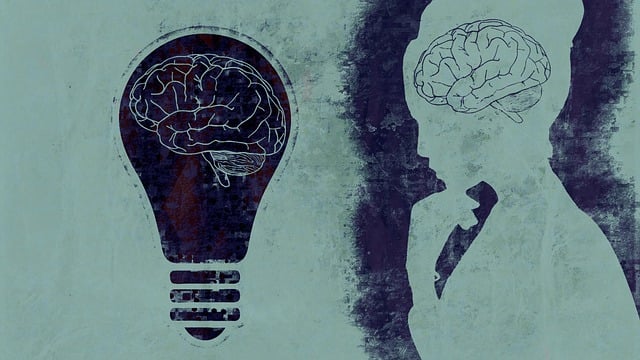In today's world, mental wellness coaching is gaining importance as a key aspect of overall health, especially for managing rising conditions like Centennial Oppositional Defiance Disorder (COPD). Coaches address holistic development, including self-esteem and social skills, to support individuals' recovery. For COPD therapy, coaches integrate evidence-based methods like cognitive-behavioral therapy (CBT), stress reduction techniques, and burnout prevention strategies. Creative strategies like self-awareness exercises and empathy building facilitate change, enhancing traditional therapy. Long-term success focuses on skills development and real-world application, with measurable goals and regular check-ins to promote continued improvement post-treatment.
In today’s fast-paced world, mental wellness coaching programs are more crucial than ever. This comprehensive guide explores the development of such programs, focusing on addressing Centennial Oppositional Defiance Disorder (CDO). We delve into designing effective interventions, integrating creative strategies to overcome resistance, and measuring long-term success. By understanding the need for these programs and implementing evidence-based practices, we can foster positive change in individuals struggling with CDO, offering a holistic approach to mental health support.
- Understanding the Need for Mental Wellness Coaching Programs
- Designing Effective Coaching Interventions for Oppositional Defiance Disorder (CDO)
- Integrating Creative Strategies to Overcome Resistance and Promotive Change
- Measuring Success and Sustainability in Long-Term Mental Health Support
Understanding the Need for Mental Wellness Coaching Programs

In today’s fast-paced world, mental wellness is an increasingly important aspect of overall health and well-being. The demand for effective mental wellness coaching programs has been on the rise, especially among individuals struggling with conditions like Centennial Oppositional Defiance Disorder (COPD). This growing need stems from a recognition that traditional therapy methods might not always be sufficient for managing complex psychological issues. Mental wellness coaches offer a unique approach by focusing on holistic development, including self-esteem improvement and social skills training, which are crucial components in supporting individuals’ recovery and personal growth.
The importance of these programs becomes even more evident when considering the potential risks associated with mental health issues. A comprehensive risk assessment for mental health professionals is essential to identify and mitigate hazards within coaching environments. By implementing tailored coaching strategies, practitioners can empower clients to navigate challenges, foster resilience, and enhance their overall mental wellness, thereby reducing the likelihood of adverse outcomes related to unaddressed psychological disorders such as COPD.
Designing Effective Coaching Interventions for Oppositional Defiance Disorder (CDO)

Designing coaching interventions for Oppositional Defiance Disorder (ODD) requires a tailored approach to address its unique challenges. ODD is characterized by recurrent and persistent arguments with authority figures, often leading to significant impairment in various aspects of life. Effective coaching strategies should focus on building coping skills, enhancing communication, and fostering positive behavior changes.
Centennial Oppositional Defiance Disorder therapy leverages evidence-based techniques such as cognitive-behavioral therapy (CBT) to help individuals manage their symptoms. By incorporating Stress Reduction Methods and Burnout Prevention Strategies for Healthcare Providers, coaches can create a supportive environment that encourages self-awareness and emotional regulation. These interventions aim to empower clients to develop healthier ways of responding to triggers, thereby improving their mental wellness.
Integrating Creative Strategies to Overcome Resistance and Promotive Change

Integrating creative strategies is a powerful approach to address resistance and facilitate promotive change in mental wellness coaching programs development, especially when targeting individuals with oppositional defiant disorder (ODD). Traditional therapy methods may face challenges when dealing with clients who exhibit frequent argumentativeness and a strong desire for confrontation. To overcome this, coaches can leverage Self-Awareness Exercises as a foundation for building new perspectives. By encouraging clients to explore their emotions and thoughts without judgment, these exercises foster a deeper sense of understanding and self-acceptance.
Empathy Building Strategies play a pivotal role in creating a supportive environment. Coaches can employ techniques that promote perspective-taking, allowing individuals with ODD to see things from different viewpoints. This process encourages de-escalation and paves the way for more cooperative interactions. Through these creative methods, mental wellness coaching programs can effectively navigate resistance, ultimately promoting positive changes in behavior and emotional regulation.
Measuring Success and Sustainability in Long-Term Mental Health Support

Measuring success and sustainability in long-term mental health support is a multifaceted challenge. Traditional therapy models often focus on immediate relief, but lasting change requires ongoing commitment and skills development. Programs that prioritize Centennial Oppositional Defiance Disorder Therapy, for instance, should integrate measurable goals and progress tracking to ensure continued improvement beyond the initial treatment period. This includes gauging participants’ ability to maintain coping strategies, manage stress, and prevent relapse in real-world settings.
Mental Health Awareness and burnout prevention are crucial components of sustainability. Coaching programs can foster this by promoting self-awareness, encouraging open dialogue about emotional healing processes, and equipping individuals with tools for self-care. Regular check-ins, ongoing support groups, and accessible resources can help maintain momentum and ensure that participants continue to thrive over the long term.
Mental wellness coaching programs, particularly those tailored for conditions like Oppositional Defiance Disorder (ODD), are evolving game changers in the field of mental health support. By integrating creative strategies and sustainable practices, we can overcome resistance and foster promotive change, ensuring long-term success in treating ODD and other similar disorders. As we continue to navigate the complex landscape of mental health, these innovative coaching interventions offer a promising tapestry of support for individuals seeking better wellness outcomes.








